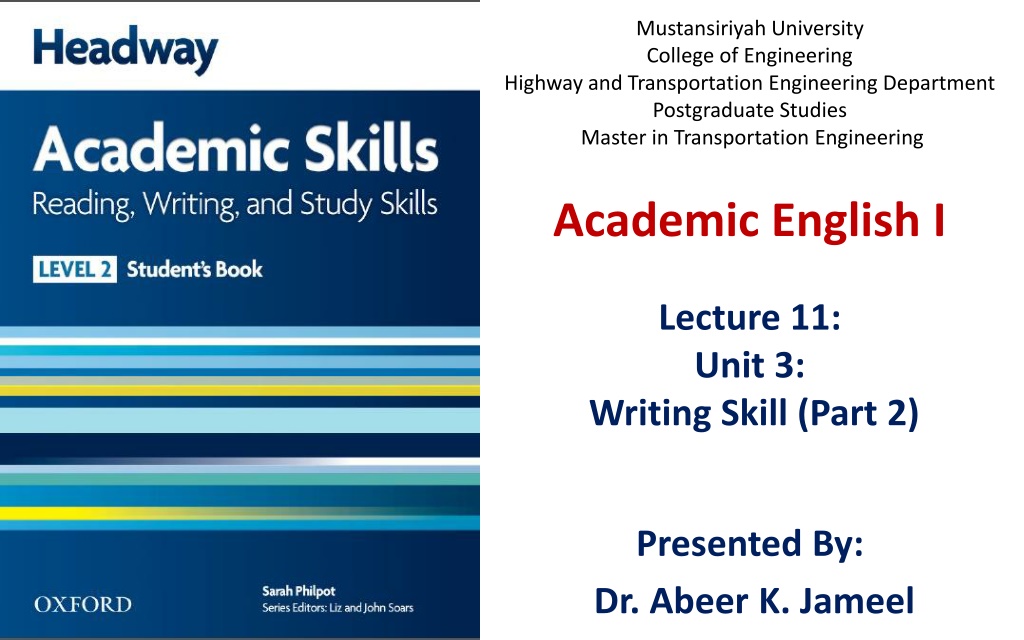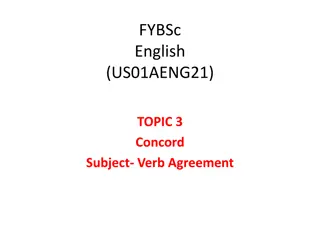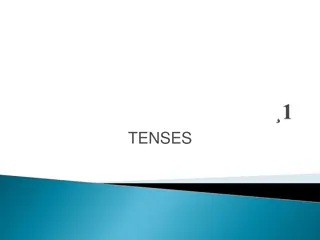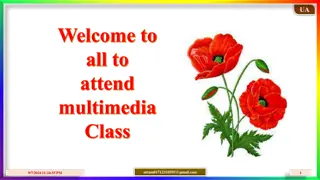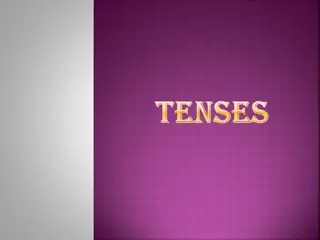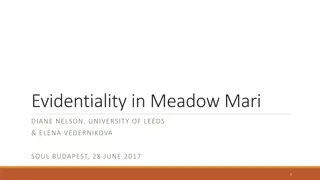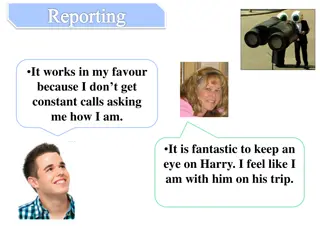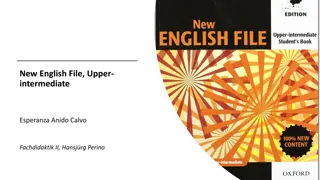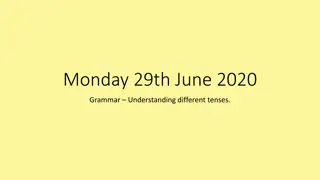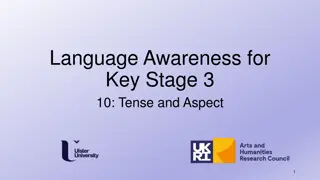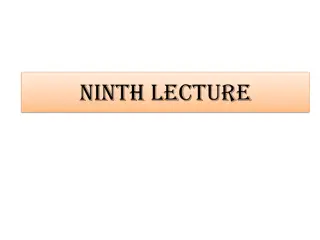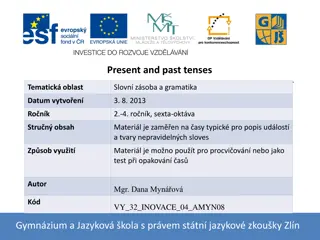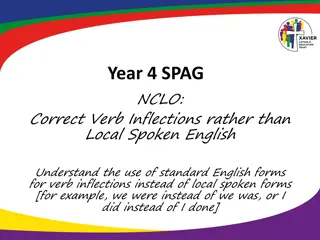Understanding Verb Tenses in English Language
Exploring the three main verb tenses in English - present, past, and future - along with their aspects like simple, continuous, perfect, and perfect continuous. Delve into the nuances of simple tenses and their applications in language learning.
Download Presentation

Please find below an Image/Link to download the presentation.
The content on the website is provided AS IS for your information and personal use only. It may not be sold, licensed, or shared on other websites without obtaining consent from the author. Download presentation by click this link. If you encounter any issues during the download, it is possible that the publisher has removed the file from their server.
E N D
Presentation Transcript
Mustansiriyah University College of Engineering Highway and Transportation Engineering Department Postgraduate Studies Master in Transportation Engineering Academic English I Lecture 11: Unit 3: Writing Skill (Part 2) Presented By: Dr. Abeer K. Jameel
Have you ever been mistaken for someone else? Last night, Mr John Taylor, an Australian businessman, went to Paris for an important meeting. He was sent by the Australian government to give a speech to French businessmen and women. It was to encourage more trade. It was, therefore, a very important speech and Mr Taylor had prepared it carefully. At the same time, a Mr Paul Taylor was also travelling on the same flight.
Have you ever been mistaken for someone else? Mr John Taylor, an Australian businessman, went to Paris for an important meeting. He was sent by the Australian government to give a speech to French businessmen and women. It was to encourage more trade. It was, therefore, a very important speech and Mr Taylor had prepared it carefully. At the same time, a Mr Paul Taylor was also travelling on the same flight.
Have you ever been mistaken for someone else? Mr John Taylor, an Australian businessman, went to Paris for an important meeting. He was sent by the Australian government to give a speech to French businessmen and women. It was to encourage more trade. It was, therefore, a very important speech and Mr Taylor had prepared it carefully. At the same time, a Mr Paul Taylor was also travelling on the same flight.
Have you ever been mistaken for someone else? Mr John Taylor, an Australian businessman, went to Paris for an important meeting. He was sent by the Australian government to give a speech to French businessmen and women. It was to encourage more trade. It was, therefore, a very important speech and Mr Taylor had prepared it carefully. At the same time, a Mr Paul Taylor was also travelling on the same flight.
There are three main verb tenses in English: present, past and future. The present, past and future tenses are divided into four aspects: the simple, continuous, perfect and perfect continuous. Simple Tenses Simple tenses usually refer to a single action. In general, simple tenses express facts and situations that existed in all times Simple present: I drive home every day. Simple past: I drove home yesterday. Simple future: I will drive home later. Continuous Tenses It is used to talk about unfinished events. Past continuous : I was driving when you called. Present continuous : I am driving now. Future continuous : I will be driving when you call.
Perfect Tenses It expresses the idea that one event happens before another event. The adverbs never, yet and already are common in perfect tenses. Present perfect: I have driven that road. Past perfect: I had already driven that road in the past. Future perfect: I will have driven 200 miles by tomorrow. Perfect continuousTenses Generally, perfect continuoustenses express duration, or how long? These tenses usually include the adverbs for or since. Present perfect continuous : I have been driving since this morning. Past perfect continuous : I had been driving for three hours before I stopped to get gas. Future perfect continuous : I will have been driving for five hours by the time I arrive.
